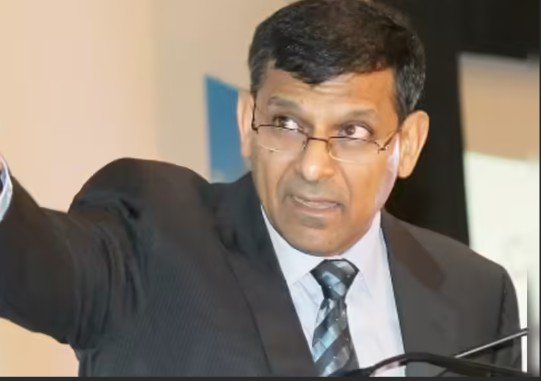Raghuram Rajan Warns: US HIRE Act Poses Greater Risk to India Than H-1B Visa Fee Hike
Former RBI Governor cautions that proposed US legislation imposing tariffs on outsourced services could hit India’s IT exports harder than visa fee increases.
New Delhi, Nov 3: Former Reserve Bank of India (RBI) Governor Raghuram Rajan has sounded an alarm over the proposed US Help In-sourcing and Repatriating Employment (HIRE) Act, calling it a far greater threat to India’s economy than the recent $100,000 hike in H-1B visa fees.
Speaking to DeKoder, Rajan warned that the legislation, currently being debated in the US Congress, could significantly disrupt India’s service exports by imposing tariffs on outsourced services a move that would hurt India’s IT and BPO sectors, which together form a major chunk of India’s export revenue.
“One of our biggest concerns is not so much the goods tariffs but if they try and find ways of imposing tariffs on services. This is a threat,” Rajan said. “There’s the HIRE Act, which will try and put tariffs on outsourced services. How that’ll be implemented is anybody’s question, but this creeping of tariffs beyond goods to services and even to Indian visitors into the US through the H-1B route these are all concerns.”
What is the US HIRE Act?
The HIRE (Halting International Relocation of Employment) Act seeks to discourage American companies from outsourcing jobs by imposing a 25% excise tax on payments made to foreign entities or individuals for outsourced services.
Under the proposed law, US companies would also lose tax deductions on such payments. The revenue from these taxes would be directed toward reskilling and apprenticeship programs for American workers.
If passed before December 31, 2025, the legislation would take effect from January 1, 2026, potentially impacting sectors like IT, BPO, consulting, global capability centers (GCCs), and freelancing services.
India’s IT sector which earns over 70% of its export revenue from the US is expected to be the hardest hit, followed by other outsourcing hubs such as Ireland, Israel, Poland, and the Philippines.
Rajan on Tariffs and Trade Risks
Rajan also highlighted that India is already facing record US tariffs of 50%, compared to 47% for China, particularly affecting labour-intensive sectors like textiles.
“It’s extremely important for India that our tariffs be brought down quickly, especially in areas where we have labour-intensive industries that have made headway into the US,” he said.
Diminishing Dependence on H-1B Visas
According to Rajan, the need for H-1B visas among Indian IT firms is gradually reducing due to advancements in virtual collaboration.
“Over time, the need for H-1B visas for Indian companies has been diminishing because a lot more can be done through virtual networks rather than physical presence,” he said.
He added that companies may increasingly hire Indian students already based in the US or expand India-based operations instead of sending employees abroad.
“Many more of those people will be hired directly in India but kept in their GCCs, transmitting their work virtually,” Rajan noted. “The net effect will be less H-1B immigration into the US — but the HIRE Act is much more important for us.”
Summary:
Rajan’s remarks highlight a strategic warning for India’s $250-billion IT services industry that the proposed HIRE Act could have long-term implications on outsourcing, digital trade, and India’s global competitiveness, far outweighing the immediate effects of the H-1B visa fee hike.




